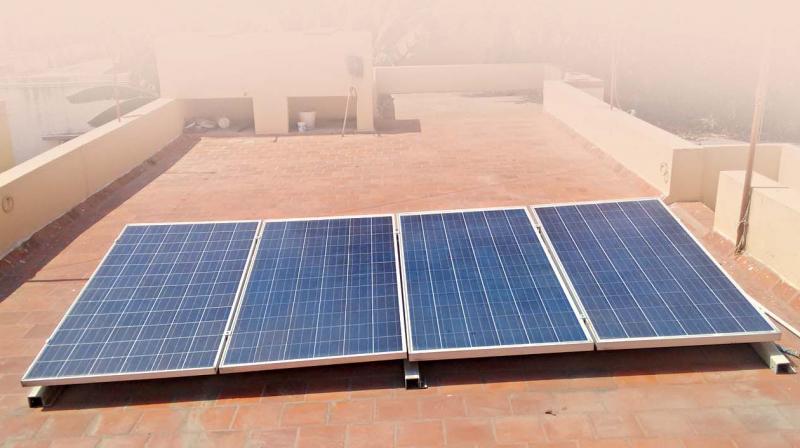Earth Day: Transcending religious & race divisions
No one who is aware of the natural calamities sweeping through the world would wonder why such a day is to be marked.

Chennai: This era has been rightly termed the anthropocene as it is dominated by human activity with a disastrous effect on the climate of our planet and hence the need for concerted action to protect Planet Earth. April 22, 2018 marks the 48th Earth Day since it was first celebrated in 1970. Slowly but significantly creeping upon its Golden Jubilee, the event is celebrated in over 193 countries.
Earth Day Network’s founder and coordinator of its first event, Darren Hays, observes appropriately, “It is a day that unites us all. A day marked to bring people together. No matter what caste, creed or colour. The largest secular holiday in the world.”
No one who is aware of the natural calamities sweeping through the world would wonder why such a day is to be marked. The simple fact is that our home is being eaten up: from the commonly known fact of cancerous cells of carbon dioxide we release into the atmosphere which are damaging the ozone layer, to the not so well known Great Pacific garbage patch. Also referred to as the Pacific trash vortex, this zone of floating plastic lies in the Pacific Ocean with the state of California in U.S to its West and Japan to its East. The estimate of its size ranges from 7,00,000 sq. km to more than 1,50,00,000 sq km. That is roughly about 8% of the ocean itself.
This is one domain in which a blame game does no one any good. There is no denying that glaciers are melting, climate is changing drastically and the earth is being ravaged, endlessly. Even after such knowledge, the question arises, why has there been no global call for action?
Indeed, there has been, and it has been going on for more than a decade.
The first major step taken was the formation of the United Nations Framework Convention on Climate Change (UNFCC). Its objective was to ‘stabilise greenhouse gas concentrations in the atmosphere at a level that would prevent dangerous anthropogenic interference with the climate system.’
Put in layman’s terms, the world leaders decided that emission levels had reached an alarming high and turning a blind eye would be catastrophic. Member countries met and realised that stabilising emissions wasn’t enough, they needed to be reduced. Further deliberations resulted in the formation of the Kyoto Protocol in 2005, which aimed at cutting emissions of greenhouse gases at a global level and the Paris Agreement of 2016, according to which each country determines plans and reports the contribution it needs to make to lull global warming.
With rising mercury levels around the world, melting polar caps, the need of the hour is individual awareness and change at a personal level. In the immortal words of Michael Jackson, ‘If you want to make the world a better place, take a look at yourself and make the change.’
Literally anyone can pitch in and do their bit to save the Earth. Instead of spouting words like carbon footprint and biodegradable waste, start taking action. Segregate your waste, reuse your plastic, refuse things that you know are non-biodegradable and toxic to the environment.
We need to be more diligent in our efforts to save the environment, start reducing and reusing, start moving to cleaner energy sources.
An eco-conscious citizen of the city, K. Latha, who believes that change must happen at an individual level says, “I have always been alarmed by the rate at which we are using up the earth’s resources. When I wondered what I could do about it, I came up with the idea to reduce my consumption of energy from non-renewable resources. I have a solar installation on my rooftop which powers the house partially. I try to cut down on my use of plastic consciously—simple things like taking a shopping bag, not throwing plastic waste on the road, trying to grow plants in the little space I have in my house. I do my little bit to ensure that I leave an inhabitable planet for the next generation,”.
Walking or taking public transport to work, using reusable bottles, and even switching to solar energy at home are some things you can do if you feel like giving back to the planet. It would do well for humans to remember that the only way we can survive in nature’s scheme of things is to let Earth live.

